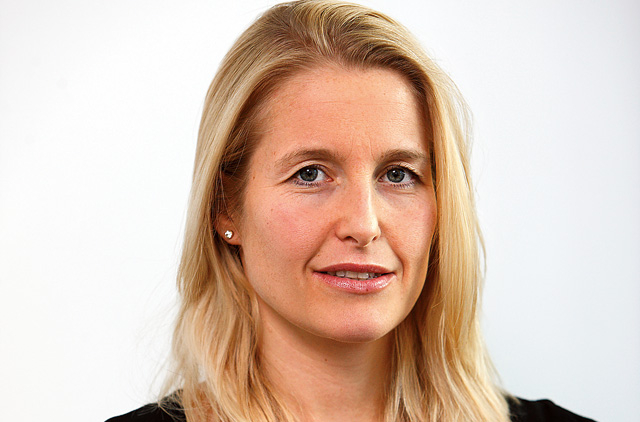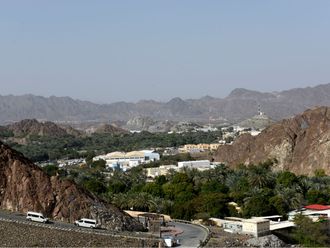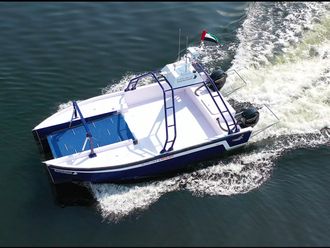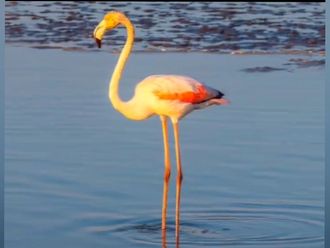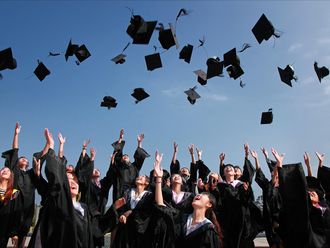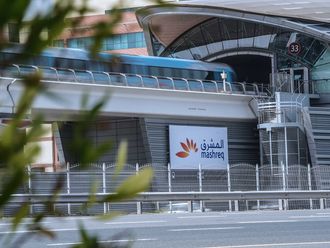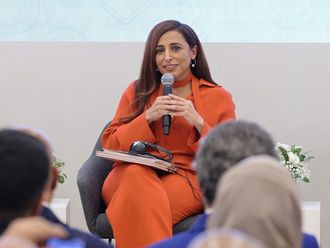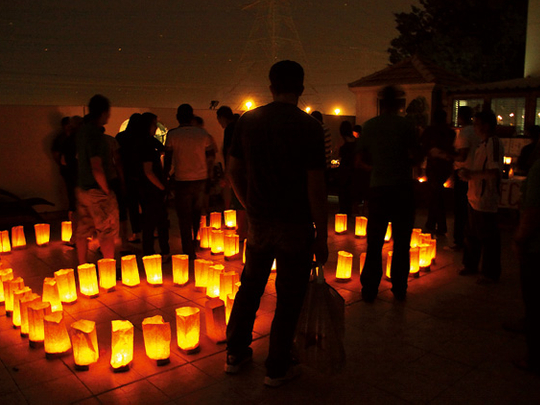
There are no plastic bottles or beakers in the office of the Emirates Wildlife Society - World Wildlife Fund in Al Barsha, Dubai. Water is in glass bottles and served in glass tumblers.
Ida Tillisch, acting director general, EWS-WWF, obviously believes in leading by example. "My own commitment to last year's Earth Hour campaign was to stop using plastic bottles and I am happy to tell you that neither do I buy plastic bottles nor do I use plastic cups to drink water from any more," she says. "It's a small thing, but like a lot of other people who we worked with last year, we kept our word."
The first Earth Hour campaign was started by WWF Australia in Sydney in 2007, asking the residents of the city to turn their lights off for an hour on one day a year, to demonstrate their support for action on climate change and prove that together, our actions add up. This caught the imagination of people around the world.
In fact, the Earth Hour campaign is about small gestures like Ida's, which take hold, catch on and go on to make a difference.
"Earth Hour has grown to become the world's biggest environmental campaign," says Ida. "Last year, it reached 1.8 billion people around the world. The theme was ‘Go Beyond the Hour', which was an important message because Earth Hour is not really about the 60 minutes when we put out the lights; it's a great symbol to show what people can do when they all act together. The point is how we change our actions every day to counteract climate change."
Making the switch
As a global sustainability movement, Earth Hour is the largest voluntary environment action in the world, which calls on individuals and businesses around the world, to turn off their lights at the same time - 8.30pm-9.30pm local time - for an hour each year.
In 2011, the UAE joined millions of people across 5,000 cities, towns and communities in 134 countries, to participate in the initiative. "We have been encouraged to see significant increases in the number of people participating in recent years," says Ida.
This year, Earth Hour is on March 31 and the daring theme is, ‘I will if you will'.
The I Will If You Will campaign uses the YouTube video platform to allow participants to share a personal dare with the world by asking, What are you willing to do to save the planet?
"It's a challenge that can be given at all different levels; a colleague challenging another colleague, a teacher challenging her class, a school challenging another school or even a city another city," says Ida. "I Will If You Will is the obvious next stage in the environmental campaign's evolution."
The campaign gives everybody the chance to inspire their friends, colleagues and neighbours to make changes in their lifestyle that will be sustainable not just for an hour but beyond.
"I plan to cook dinners for 50 children and their families if 500 people sign up to our challenge to buy and consume only sustainable seafood,'' Ida says.
"The concept of I Will If You Will is about providing a social contract for two parties - connecting one person, business or organisation to a promise and their friends, family, customers or members to a challenge - uniting them behind the common goal of creating a positive environmental outcome," she adds. The simple promise can range from recycling, to switching to energy-efficient light bulbs, turning off your mobile charger, or signing up for paperless banking.
The idea has caught on across the world, says Ida. "The Fiji president has joined to challenge five Fijian companies and NGOs to conduct an environmental act that has impact and if they commit to his challenge, he will walk 30km. And he's 70 years old! So, it's all about giving people a challenge and keeping them engaged so they take positive actions for the planet."
Ida says the campaign only gets bigger. "The level of participation each year has grown substantially to reach 1.8 billion people worldwide in 135 countries and territories."
In the UAE, participation in the Earth Hour campaign began in 2009. Non-essential lights in public buildings were switched off and thousands of residents all over the UAE followed suit. "The popularity of the campaign has increased every year, with enthusiastic participation from businesses, government authorities as well as individuals," say Ida.
The campaign also saw official participation from all seven emirates. All the major landmarks in the country, including Shaikh Zayed Grand Mosque, Burj Khalifa, Qanat Al Qasba and Fujairah Fort featured prominently in the campaign. "Over 100,000 people were involved through social media alone, and more than 400 businesses officially signed up for Earth Hour on our website," says Ida.
An all-year-round eco effort
Earth Hour is not the only initiative of the EWS-WWF. Over the past decade, it has successfully implemented several conservation and education projects, such as the Marine Turtle Conservation Project, Wadi Wurayah, Coral Reef Conservation, Blue Flag, Be'ati Watani and the Eco-Schools Project.
Another key focus area for EWS-WWF is tackling climate change and reducing the UAE's high per capita Ecological Footprint - which is defined as the measure of human demand on ecological systems.
It was a key partner in Al Basma Al Beeiyah (the Ecological Footprint Initiative), and has been working with the WWF to validate the country's footprint as part of the WWF's bi-annual Living Planet Report, which measures the world's biodiversity and humanity's demand on the biosphere.
This year, EWS-WWF plans to make Earth Hour the biggest ever in the UAE by getting even more people involved in the global movement. "We call on all UAE residents to participate in Earth Hour and in the, I Will If You Will Challenge," appeals Ida.
"We all have the power to make a change. It is only through the collective action of every individual, business and government throughout the world, that we can make an impact."
The Eco-schools Project
Eco-schools Project is an international programme encouraging schools to take environmental action. Students are directly involved in making environmental decisions for their schools, giving them responsibility for their local environment. If the school demonstrates a certain level of commitment, it can achieve Eco-School status and can fly the programme's Green Flag.
The following schools in the UAE achieved significant results, and won a green makeover with consultation worth Dh10,000:
- Al Shola Private School, Sharjah - 40.70 per cent reduction in energy and water usage
- Raffles International School, Dubai - 34.30 per cent reduction in energy and water usage
- Our Own English High School, Sharjah - 32.47 per cent reduction in energy and water usage
- Ibn Haitham Intermediate school for Boys, Ajman - 36.65 per cent reduction in energy and water usage
- Al Zawra school for Girls, Ajman - 67.20 per cent reduction in energy and water usage
- Idhin Girls School, RAK - 37.63 per cent reduction in energy and water usage
How you can get involved
Turn off non-essential lights in your buildings, facilities and signage during Earth Hour 2012 from 8.30pm-9.30pm on Saturday, March 31.
Join other people and committed businesses around the world in leading global environmental change. For larger buildings, plan ahead with facilities and building managers to manage the logistics of switching off non-essential lighting for Earth Hour 2012 - including neon lights - in and around your properties. Don't forget to take before and after Earth Hour photos of your building and share it with EWS-WWF on flickr.


